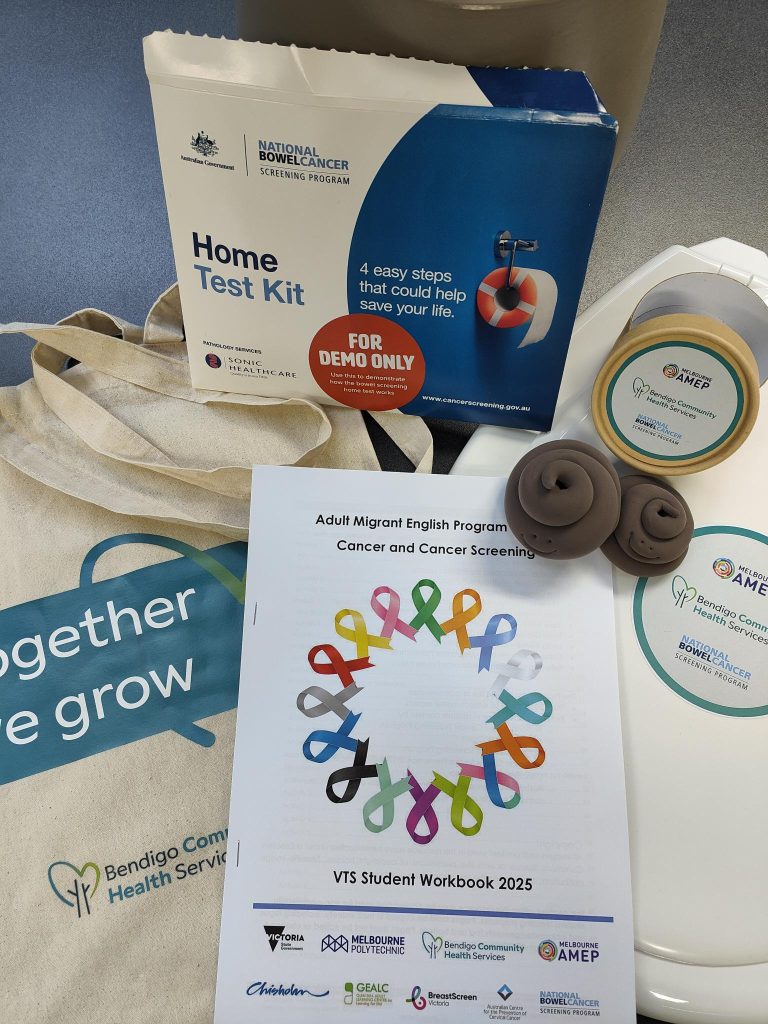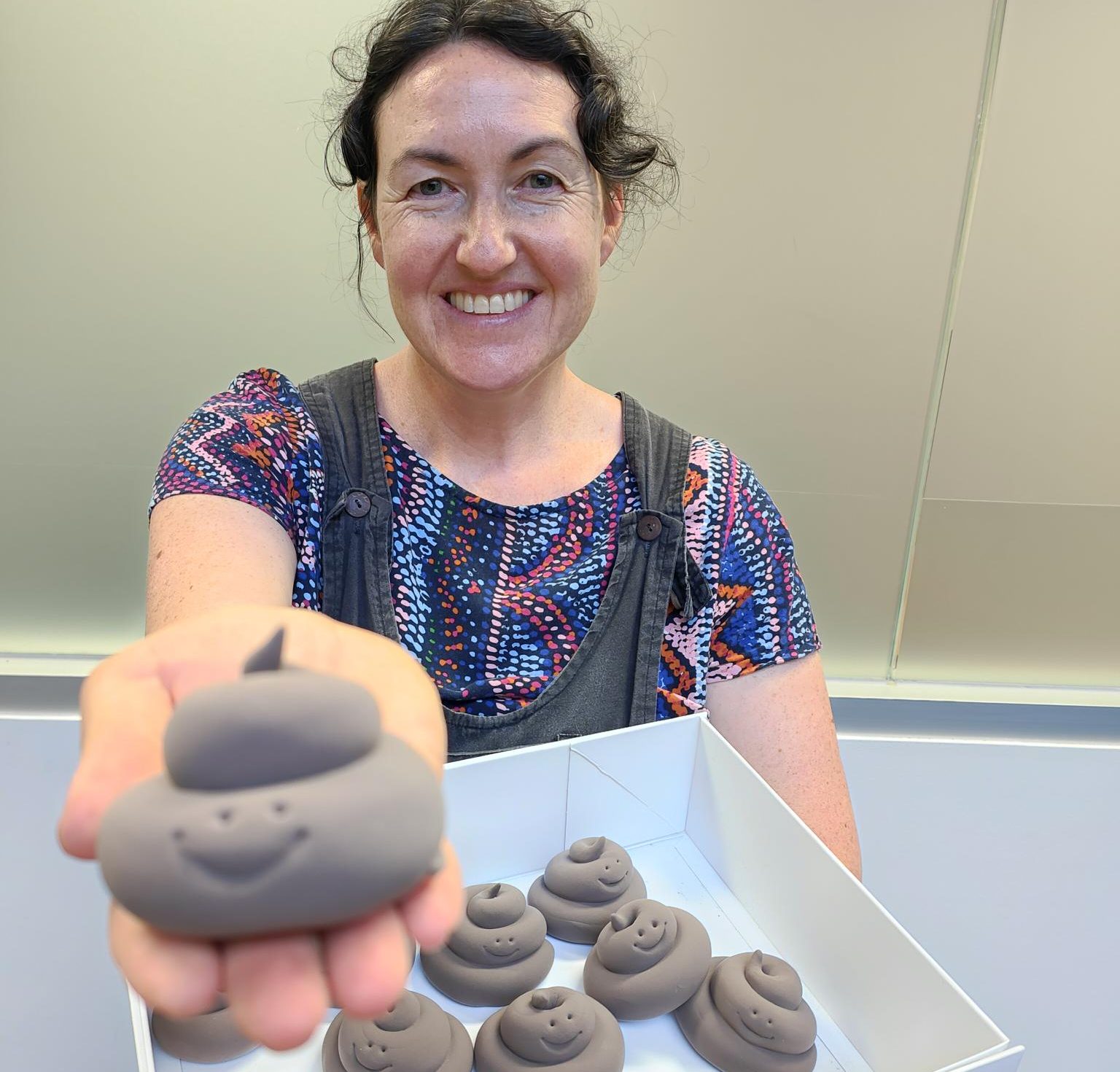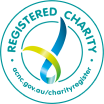Bendigo Community Health Services is working to ensure new migrants and refugees have a better understanding of cancer and Australia’s cancer screening programs.
BCHS has partnered with Melbourne Polytechnic to take cancer screening education into Adult Migrant English Program* classrooms, beginning with Bendigo TAFE’s English lessons.
Refugee Cancer Services Project Facilitator Lisa Carson (above) said the initiative has included developing resources and delivering information about cancer and cancer screening in a way that is understandable, accessible, and culturally safe for new arrivals.
“It’s about helping to increase familiarity with cancer screening for migrants,” Lisa said.
“The hope is that this will bring cancer screening to a lot more people. For example, if people get a bowel cancer kit in the mail, they won’t just throw it in the bin, they’ll know it’s important.”
The program consists of five modules: What is Cancer, Breast Cancer Screening, Bowel Cancer Screening, Cervical Screening, and A Healthy Lifestyle. It also has the aid of interpreters and the students’ regular teachers.
“From a cultural perspective, it can be a challenge for the students to talk about cancer,” Lisa said. “But the students have so far welcomed the knowledge with a willingness to learn.”
Lisa said the lessons are kept engaging thanks to the props and materials BCHS has collated and developed, which include cancer screening kits and tools, toilet seats, and even cute squishy poo characters.

“I thought they would be great props to provide to the teachers to facilitate some acting out in class of how you take your sample, but I wasn’t able to buy any poo emojis at the time,” Lisa said.
Instead, Lisa bought a tub of cloud foam and made her own squishy specimens, giving each a cheeky grin in keeping with the lightness of the classes.
The feedback from Bendigo TAFE teachers about the bowel cancer class in particular has been positive. They said it was one of the best because they all laughed together and had some fun.
“It (cancer) is not meant to be a dark and gloomy topic,” Lisa said. “It’s about giving the students knowledge to understand what’s available to them in Australia.”
Bendigo TAFE Vocational English Teacher Karen Ballard said her students were keen to learn about the free screening available to them.
“The most rewarding aspect of the course was imparting information that’s very important to the students’ health and that of their families, and knowing that it helped to allay any fears they might have had in relation to screening,” Karen said.
BCHS expects to deliver the project to more than 130 students over 12 months, at Bendigo TAFE, Chisholm Institute Dandenong, Glen Eira Adult Learning Centre, and via the AMEP Volunteer Tutor Scheme.
Lisa said the students have shown great courage as they learn about cancer and cancer screening alongside learning the English language.
“You can just imagine how it would be for yourself, in a different country, if you couldn’t speak the language, to roughly understand what a doctor says — it would be so scary,” she said.
Lisa has a background as a chemotherapy and breast cancer nurse in Bendigo, which has motivated her work.
“On occasion Karen people would come in for treatment, and the experience was very different for them,” she said.
“Although they had language support, because of the language barrier, we couldn’t reassure them in the same way. It’s just knowing these patients aren’t as comfortable and don’t feel as safe – as a nurse you just know the difference.
“I was really keen to be involved (in this cancer project) to see what I could do to help people coming into Australia.”
Although it’s showing great early success, the program is set to finish in mid-2025.
“We’re hoping for more funding, and to show this is beneficial and needs to carry forward,” Lisa said.
By Bethany Knight, BCHS Marketing and Communications intern
The Refugee Cancer Services Project is supported by the Victorian Government.
*The Adult Migrant English Program is a free voluntary program for eligible migrants and humanitarian entrants funded by the Australian Government Department of Home Affairs.







